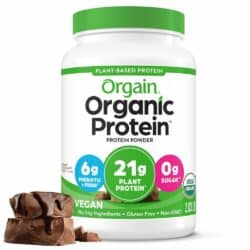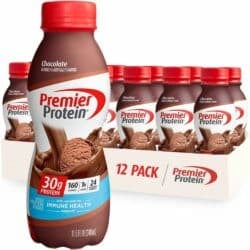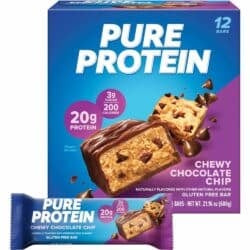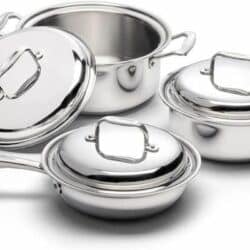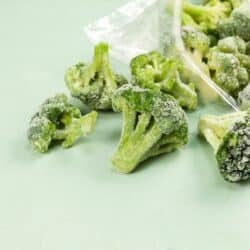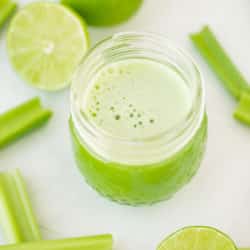Is Fairlife Core Power Healthy (Nutrition Pros and Cons)?
In this blog post, I’ll review the question of whether Fairlife Protein Shakes are healthy? Find out this product’s nutrition pros and cons so you can make your own decision if this product is good for you or not.
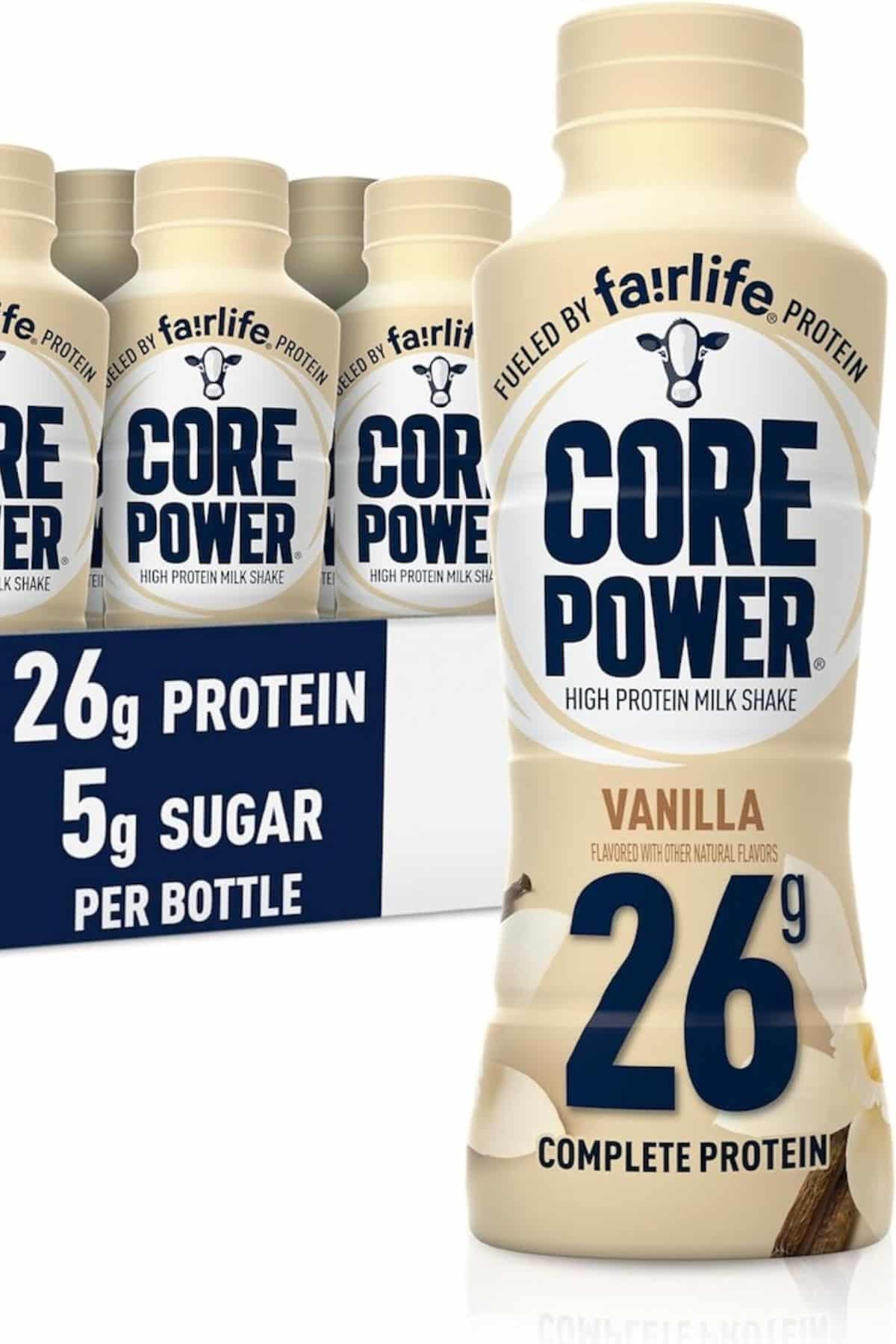
Fairlife Core Power Protein Shake Facts
Fairlife Protein Shakes are a range of dairy-based protein shakes with ultra-filtered low-fat grade A milk as their main ingredient. Fairlife LLC, a subsidiary of The Coca-Cola Company, produces the shakes in three flavor variants:
- Chocolate
- Vanilla
- Strawberry Banana
Each 14-ounce serving contains 26 grams of protein, which can help you to feel fuller for longer and aid in repairing and building muscle.
The brand targets health-conscious consumers, particularly athletes, fitness enthusiasts, and individuals with high-protein diets seeking improved nutritional options.
Fairlife Protein Shakes do not contain any added sugar but are artificially sweetened with acesulfame potassium, sucralose, and stevia leaf extract.
Ingredients
All Fairlife Protein Shakes contain low-fat, ultra-filtered milk. They also contain lactase enzymes, vitamins, natural flavors, artificial flavors, carrageenan, cellulose gel, cellulose gum, maltodextrin, monk fruit juice concentrate, stevia leaf extract, acesulfame potassium, and sucralose.
Let’s explore the main ingredients and what they might mean for your health.
Grade A Ultra-Filtered Milk
The primary ingredient in Fairlife Shakes is Grade A ultra-filtered milk.
It is a dairy product made from milk that undergoes a specialized filtration process to boost its protein content and remove impurities. This process entails the removal of sugars while concentrating the high quality protein and other essential nutrients.
Although ultra-filtered, it has some potential health advantages like reduced sugar levels, increased protein concentration, and prolonged shelf life compared to conventional milk, there are potential health considerations associated with this food.
One concern is the possible loss of certain beneficial nutrients during filtration, which could lower this milk’s overall nutritional value. The filtering process also transforms milk into a processed food as opposed to being in its original, whole-food state.
Lactase Enzyme
Lactase enzyme serves as a common additive or supplement in milk, facilitating the breakdown of lactose, the natural sugar present in dairy products, thereby enhancing digestibility for individuals with lactose intolerance.
While lactase enzyme supplementation in milk alleviates discomfort for many, there are potential health considerations to bear in mind.
Some people are sensitive to enzymes or other milk components. Another potential health risk is that relying excessively on lactase-treated milk may obscure symptoms of lactose intolerance and obscure underlying digestive concerns over time.
According to experts, it’s important to be mindful and to consume products like this with caution because the long-term effects of regular consumption are unknown.
Vitamin A Palmitate and Vitamin D3
Food manufacturers typically add Vitamin A and D to fortify foods, and these vitamins play pivotal roles in supporting various aspects of health.
Vitamin A contributes to vision, immune function, and skin health, whereas vitamin D facilitates calcium absorption and bone health. While these nutrients offer notable benefits, excessive intake can pose health risks.
Overconsumption of vitamin A may lead to toxicity, manifesting symptoms such as nausea, dizziness, and liver damage. Similarly, excessive vitamin D intake can induce hypercalcemia, characterized by symptoms like nausea, weakness, and kidney problems.
Monitoring your overall dietary intake of these vitamins is essential, especially if you consume other fortified foods or dietary supplements.
Sucralose and Acesulfame Potassium
Fairlife Protein Shakes contain artificial sweeteners to enrich flavor profiles without increasing sugar content.
Acesulfame potassium and sucralose, widely used as sugar substitutes in various food and beverage items, serve this purpose. Despite offering sweetness devoid of added sugar, their consumption entails potential health risks.
Acesulfame potassium has raised concerns due to its potential link to cancer, especially in high doses, as suggested by scientific research.
While regulatory authorities consider sucralose safe for human consumption, inquiries persist regarding its impact on gut health and metabolism, particularly with extensive intake.
Food Additives
Fairlife Protein Shakes contain many food additives, including artificial flavors, cellulose gel, cellulose gum, and carrageenan. Although some of these additives may not directly impact your health if you use them in moderation, they can add up quickly.
Drinking highly processed protein shakes like this regularly or consuming products with high levels of food additives can cause digestive problems like stomach cramps, bloating, gas, constipation, and diarrhea.
Some of these additives have been linked to severe health problems like oxidative stress, inflammatory bowel disease (IBD), and even cancer.
Nutrition Pros
Fairlife Protein Shakes are lactose-free, which means that people who are lactose intolerant may be able to tolerate this product, even though it is made from dairy.
The high protein content makes this drink an option for people who want to increase their protein intake to support muscle growth, recovery after exercise, and overall nutrition.
Dairy in general is a complete protein which has potential health benefits for some people.
It’s also a convenient, ready-to-drink option available in three flavors. It is not overly expensive and can be found in most grocery stores and gas stations.
Nutrition Cons
Despite the high protein levels and that it’s lactose-free, Fairlife Protein Shakes come with several nutrition cons.
It is a highly processed product that contains several potentially unhealthy ingredients. The main ingredient undergoes an ultra-filtration process, which can negatively affect its nutritional profile.
Some of the other ingredients are unhealthy artificial sweeteners like acesulfame potassium and sucralose and various food additives, including carrageenan, cellulose gel, and cellulose gum.
Fairlife Milk is not organic, which means it may contain residues of pesticides and antibiotics used in conventional dairy farming.
Overall, I do not consider this product to be healthy or part of a clean eating approach (get my free clean eating grocery list).
FAQs
Yes, likely people who are lactose intolerant can generally consume Fairlife Protein Shakes. Fairlife uses a proprietary filtration process that removes most of the lactose from the milk used in their protein shakes.
As a result, Fairlife Protein Shakes are considered lactose-free or contain very low levels of lactose, making them suitable for individuals with lactose intolerance.
The shakes also contain added lactase enzyme, which helps digest lactose, should any of it be present in the product.
Yes, Fairlife Protein Shakes contain artificial sweeteners or additives like acesulfame potassium and sucralose to enhance sweetness without adding extra sugar. Fairlife Protein Shakes also contain additives such as stabilizers, thickeners, and flavors to improve taste and texture. These additives include carrageenan, cellulose gel, and cellulose gum.
No, Fairlife Protein Shakes are generally not a significant source of dietary fiber. While they primarily focus on providing a high protein content, Fairlife Protein Shakes typically contain minimal dietary fiber.
More Packaged Product Reviews You Might Like
Conclusions
Fairlife Protein Shakes are highly processed products that contain added ingredients that are not considered healthy. Ultra-filtered milk has some nutritional value, but it transforms milk into a highly processed food. Additionally, there are other added ingredients in these products that may cause health problems in certain individuals.
Don’t forget to join my newsletter list to get exclusive clean eating recipes and tips. The newsletter is 100% free with no spam; unsubscribe anytime.
About the Author: Carrie Forrest has a master’s degree in public health with a specialty in nutrition. She is a top wellness and food blogger with over 5 million annual visitors to her site. Carrie has an incredible story of recovery from chronic illness and is passionate about helping other women transform their health. Send Carrie a message through her contact form.
Note: this post is for informational purposes only and is not intended as medical advice. Please consult your healthcare provider for recommendations related to your individual situation.




